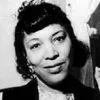Although our intellect always feels itself urged towards clearness and certainty, still our mind often feels itself attracted by uncertainty. Instead of threading its way with the understanding along the narrow path of philosophical investigations and logical conclusions, in order almost unconscious of itself, to arrive in spaces where it feels itself a stranger, and where it seems to part from all well known objects, it prefers to remain with the imagination in the realms of chance and luck.
[Obgleich sich unser Verstand immer zur Klarheit und Gewißheit hingedrängt fühlt, so fühlt sich doch unser Geist oft von der Ungewißheit angezogen. Statt sich mit dem Verstande auf dem engen Pfade philosophischer Untersuchung und logischer Schlußfolgen durchzuwinden, um, seiner selbst sich kaum bewußt, in Räumen anzukommen, wo er sich fremd fühlt, und wo ihn alle bekannten Gegenstände zu verlassen scheinen, weilt er lieber mit der Einbildungskraft im Reiche der Zufälle und des Glücks.]
Karl von Clausewitz (1780-1831) Prussian soldier, historian, military theorist
On War [Vom Kriege], Book 1, ch. 1 “What Is War? [Was ist der Krieg?],” § 22 (1.1.22) (1832) [tr. Graham (1873)]
(Source)
(Source (German)). Alternate translations:Although our intellect always feels itself urged toward clarity and certainty, our mind still often feels itself attracted by uncertainty. Instead of threading its way with the intellect along the narrow path of philosophical investigation and logical deduction, in order almost unconsciously, to arrive in spaces where it finds itself a stranger and where all familiar objects seem to abandon it, it prefers to linger with imagination in the realms of chance and luck.
[tr. Jolles (1943)]Although our intellect always longs for clarity and certainty, our nature often finds uncertainty fascinating. It prefers to day-dream in the realms of chance and luck rather than accompany the intellect on its narrow and tortuous path of philosophical enquiry and logical deduction only to arrive -- hardly knowing how -- in unfamiliar surroundings where all the usual landmarks seem to have disappeared.
[tr. Howard & Paret (1976)]
Quotations about:
gamble
Note not all quotations have been tagged, so Search may find additional quotes on this topic.
“What have we got to lose?” I said.
Nightingale looked up and gave me a strange, sad smile. “Oh, everything, Peter,” he said. “But then, such is life.”
It’s a funny thing, the less people have to live for, the less nerve they have to risk losing — nothing.
Zora Neale Hurston (1891-1960) American writer, folklorist, anthropologist
Moses, Man of the Mountain, ch. 2 (1939)
(Source)
Better hazard once than be always in fear.
Thomas Fuller (1654-1734) English physician, preacher, aphorist, writer
Gnomologia: Adages and Proverbs (compiler), # 906 (1732)
(Source)
The chessboard is the world; the pieces are the are the phenomena of the universe; the rules of the game are what we call the laws of Nature. The player on the other side is hidden from us. We know that his play is always fair, just, and patient. But also we know, to our cost, that he never overlooks a mistake, or makes the smallest allowance for ignorance. To the man who plays well, the highest stakes are paid, with that sort of overflowing generosity with which the strong shows delight in strength. And one who plays ill is checkmated — without haste, but without remorse.
T. H. Huxley (1825-1895) English biologist [Thomas Henry Huxley]
“A Liberal Education and Where to Find It” (1868)
(Source)







